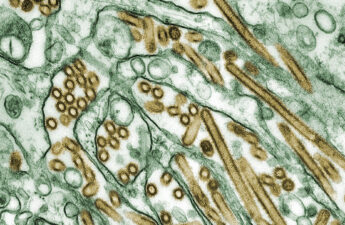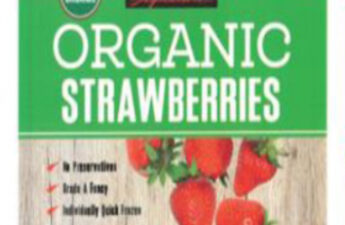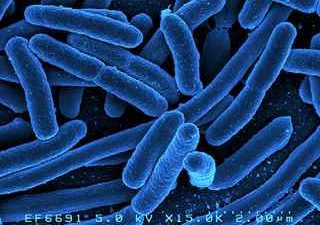Category: Food-borne Illness
New year, new norovirus outbreaks: Let’s add ‘hand washing’ to the resolution list!
Norovirus, a highly contagious virus causing vomiting and diarrhea, is prevalent during the winter months. Symptoms typically last 1-3 days and include nausea, vomiting, stomach cramps, and diarrhea. Prevention involves frequent handwashing, especially after contact with an infected person or contaminated surfaces, and proper cleaning and disinfection of affected areas.
Avian flu virus has been found in raw milk − a reminder of how pasteurization protects health
Despite health experts’ warning that raw milk could contain high levels of the avian flu virus, along with many other pathogens, raw milk sales are up in the U.S.
Health News Headlines
E-coli outbreak tied to McDonald’s quart pounders – Flesh-eating bacteria in Florida – Abortions increase –
Avian flu has infected dairy cows in more than a dozen states – a microbiologist explains how the virus is spreading
As long as you are consuming pasteurized milk products, there are no concerns for infections in humans. Pasteurization is very effective at killing any H5N1 virus that ends up in milk. People should avoid raw or unpasteurized milk, as H5N1 virus has been found at very high levels in raw milk.
Audit finds cracks in Washington’s egg inspection program
Washington’s Department of Agriculture failed to complete hundreds of required inspections of egg production and packing facilities in recent years, raising food safety concerns, according to a new state audit.
Fragments of bird flu genetic material (RNA) were found in cow’s milk from the dairy herds associated with infected US farmers.
High H5N1 influenza levels found in mice given raw milk from infected dairy cows
The results suggest that consumption of raw milk by animals poses a risk for H5N1 infection and raises questions about its potential risk in humans.
CDC warns of E. coli outbreak linked to organic walnuts sold in bulk
Almost all sick people purchased organic walnuts from bulk bins in food co-ops or natural food stores in California and Washington.
Fecal pollution threatens popular shellfish harvest areas
Fifteen of Washington’s 115 commercial shellfish growing areas may face harvest restrictions because of increased fecal bacteria levels in the water.
What is ‘fried rice syndrome’? A microbiologist explains this type of food poisoning – and how to avoid it
Enzo Palombo, Swinburne University of Technology A condition dubbed “fried rice syndrome” has caused some panic online in recent days, after the case of a 20-year-old who died in 2008 was resurfaced on TikTok. “Fried rice syndrome” refers to food…
Italian-style charcuterie meats linked to Salmonella infections in Washington
State health-officials advise people not to eat Fratelli Beretta Antipasto Gran Beretta purchased from Costco
This Thanksgiving − and on any holiday − these steps will help prevent foodborne illness
The Centers for Disease Control and Prevention reports that 1 in 6 Americans, or 48 million people, get sick from a foodborne illness each year. According to the CDC, more than 1 million of these people get sick from salmonella, which is the primary pathogen associated with poultry.
What is ‘fried rice syndrome’? A microbiologist explains this type of food poisoning – and how to avoid it
A condition dubbed “fried rice syndrome” has caused some panic online in recent days, after the case of a 20-year-old who died in 2008 was resurfaced on TikTok.
“Fried rice syndrome” refers to food poisoning from a bacterium called Bacillus cereus, which becomes a risk when cooked food is left at room temperature for too long.
The 20-year-old college student died after reportedly eating spaghetti that he cooked, left out of the fridge, and then reheated and ate five days later. Although death is rare, B. cereus can cause gastrointestinal illness if food isn’t stored properly. Here’s what to know and how to protect yourself.
Frozen Organic Strawberries and a Tropical Fruit Blend Recalled Because of Hepatitis A Risk
Several brands of frozen organic strawberries and one tropical fruit blend are being recalled following a hepatitis A outbreak that’s sickened at least five Washington residents.
E coli outbreak detected in King County
Shiga toxin-producing E. coli O157:H7 infections have been diagnosed among children, adolescents, and adults of East African communities in King County. The source of the infections has not been determined.













